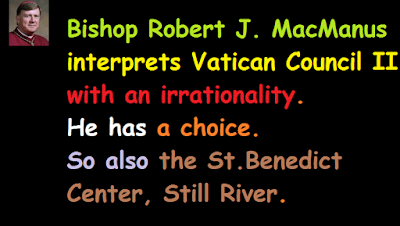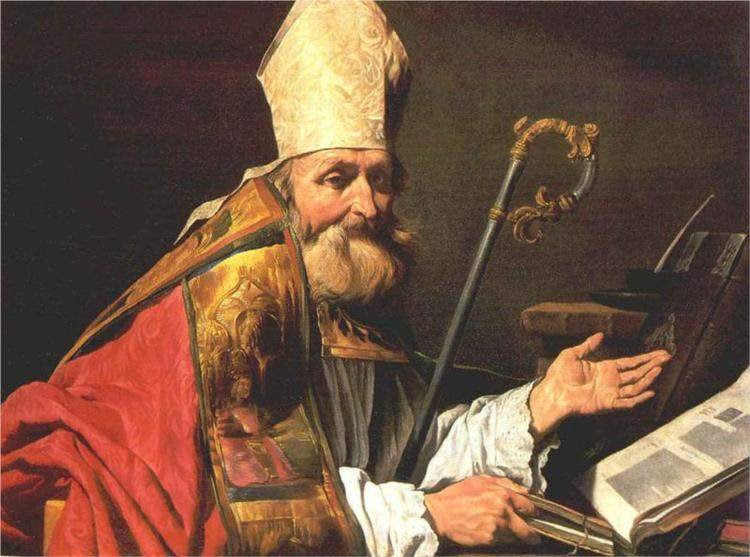July 5, 2017
When will the SSPX and the St.Benedict Centers simply say that there are no baptism of desire cases in our reality ?

On the other hand, I present you a short list of those important
documents, theologians, bishops and doctors that explicitly affirmed the
threefold Baptism (most of the quotes are found in the article
mentioned in my last comment, if you wish, I can send you the others by
mail):
St. Cyprian BM, Tertullian, St. Cyril of Jerusalem BCD, St. John
Chrysostome BCD, St. Ambrose BCD, St. Augustine BCD, St. Thomas Aquinas
CD, St. Catherine of Sienna V, Ecumenical Council of Trent, Catechism of
the Council of Trent, St. Alphonsus Liguori BCD, Pope Pius IX,
Baltimore Cathechism (19th century), The Cathechism Explained (1899),
Cathechism of Pope St. Pius X, Catholic Encyclopedia (1913), Code of
Canon Law (1917), Catholic Dictionary (1946), Sacred Congregation of the
Holy Office (1949), mons. Joseph Fenton (1952), Archbishop Lefebvre
FSSPX, Fr. Schmidberger FSSPX, Bishop Fellay FSSPX...
Brother
Andre Marie had simply to point out that the long list of baptism of
desire references, are meaningless. Since they do not exist in our
reality. So they could not be relevant or exceptions to the dogma EENS.
St.
Cyprian BM, Tertullian, St. Cyril of Jerusalem BCD, St. John
Chrysostome BCD, St. Ambrose BCD, St. Augustine BCD, St. Thomas Aquinas
CD, St. Catherine of Sienna V, Ecumenical Council of Trent, Catechism of
the Council of Trent, St. Alphonsus Liguori BCD, Pope Pius IX...do not state that the baptism of desire refers to known cases and so is an exception to EENS.
Brother André Marie,
Thank you very much, and I congratulate you on your envious and honorable status as a "radical traditionalist".
But
I have a question, if you don't mind. I would be interested to know how
the supporters of Father Feeney can explain their resistance to the
Ordinary and Universal Magisterium in the matters of Baptism of Blood
and the explicit and implicit Baptism of Desire, as expressed by
numerous bishops, doctors and theologians, from the third century
onward, including an ecumenical council, and all the pre-conciliar popes
since - and including - Pius IX?
It is, after all, a part of Catholic Tradition, and an infallible one at that.
This article contains many of those quotes, I have others too:
www.rosarychapel.net/threefoldbaptism.php
Also, to mention praxis, do you reckognize Saint Emerentiana and the
Forty Martyrs of Sebaste, martyred in the 3rd century, as Catholic
saints, since they are examples of both Baptism of Desire and Baptism of
Blood?
Ecclesia Militans,
I refer you to the following postings on our site:
Hopefully, the links I put up will work. I'm never fully confident posting HTML code in a comment box.
Brother André Marie,
I've studied the articles and I must say that they do not make a convincing argument against the threefold Baptism.
Other than quoting the many various forms of the dogma extra Ecclesiam nulla salus and discussions and speculations on St. Augustine's view, there are only two or three marginal quotes by doctors that speak againstthe threefold Baptism.
As for St. Emerentiana, I see that Fr. Feeney decided to deny Tradition
by saying she must have been baptised in water before martyrdom,
although she has always been counted as an unbaptized cathecumen who
died for Christ and received the Baptism of Blood.
On the other hand, I present you a short list of those important
documents, theologians, bishops and doctors that explicitly affirmed the
threefold Baptism (most of the quotes are found in the article
mentioned in my last comment, if you wish, I can send you the others by
mail):
St. Cyprian BM, Tertullian, St. Cyril of Jerusalem BCD, St. John
Chrysostome BCD, St. Ambrose BCD, St. Augustine BCD, St. Thomas Aquinas
CD, St. Catherine of Sienna V, Ecumenical Council of Trent, Catechism of
the Council of Trent, St. Alphonsus Liguori BCD, Pope Pius IX,
Baltimore Cathechism (19th century), The Cathechism Explained (1899),
Cathechism of Pope St. Pius X, Catholic Encyclopedia (1913), Code of
Canon Law (1917), Catholic Dictionary (1946), Sacred Congregation of the
Holy Office (1949), mons. Joseph Fenton (1952), Archbishop Lefebvre
FSSPX, Fr. Schmidberger FSSPX, Bishop Fellay FSSPX...
The inescapable conclusion is that the doctrine of Fr. Feeney denies or
contradicts the Ordinary and Universal Magisterium as expressed through
the above teachings of the said theologians, doctors etc.
It even goes against the Code of Canon Law which was valid at the time (canons 737 & 1239).
I hope you can see that to assert that so many theologians, doctors,
popes and Church documents were in error for so many centuries is to
deny the indefectibility of the Church.
St. Alphonsus Liguori calls the baptism of desire de fide,
and St. Cyprian BM, back in the 3rd century, seems to call those who do
not believe in the Baptism of Blood of the cathecumens "aiders and favourers of heretics".
Finally a short and precise quote:
"Outside of the Church, nobody can hope for life or salvation unless he is excused through ignorance beyond his control.“
Pope Pius IX, SINGULARI QUIDEM
http://www.ewtn.com/library/encyc/p9singul.htm
Tuesday, March 20, 2012
Bishop Fellay, Fr.Schmidberger,FSSP,Joseph Fenton seem unaware the baptism of desire is not an explicit exception to the dogma
Ecclesia Militans said...
Brother André Marie,
I've studied the articles and I must say that they do not make a convincing argument against the threefold Baptism.
Lionel:
it is important to note that there is only one baptism which is explicit. It is the baptism of water.
Ecclesia Militans
Other than quoting the many various forms of the dogma extra Ecclesiam
nulla salus and discussions and speculations on St. Augustine's view,
there are only two or three marginal quotes by doctors that speak
against the threefold Baptism.
Lionel:
We can only accept the baptism of desire and martrydom in pinciple.
Explicitly we do not know any case, we cannot judge.If the Church
declares someone a martyr we accept it.
CONTINUED
http://eucharistandmission.blogspot.it/2012/03/bishop-fellay-frschmidbergerfsspjoseph.html























































